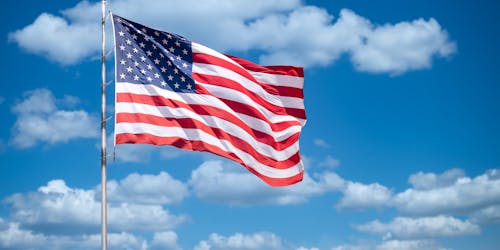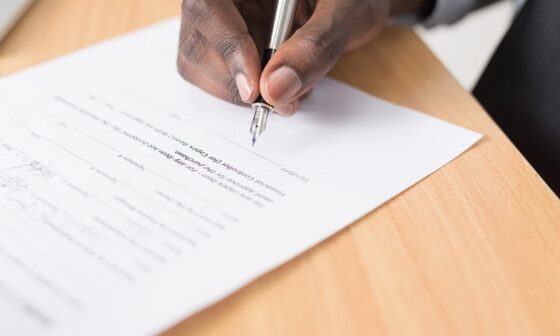Are you a Nigerian applying to work, study, or settle down in the UK but don’t know what IHS is all about, or you know but you don’t know if you are in the category of people exempt from paying the immigration health surcharge? The UK immigration process is quite complicated and complex, especially with the introduction of the immigration health surcharge.
This article breaks down everything you need to know about the immigration health surcharge. In this guide, you will discover the cost, eligibility, and how to pay for the immigration health surcharge.
What is the Immigration Health Surcharge?
The immigration health surcharge is a fee paid on the majority of UK visa applications. This fee is designed to land in the pockets of a different government. It is also known as an NHS surcharge; it essentially adds 2,446,875 naira (£1,305) per year per person to the cost of the UK visa, or 1,455,000 naira (£776) a year for children, students, and youth mobility visas.
It is a fee paid by migrants in the UK for more than six months that allows visa holders to have access to the NHS and NHS services. Health and care worker visa holders, except nurses or nursing support workers working in the UK within a different immigration category, are exempt from paying the immigration health surcharge. However, you might get a refund if you are in the nursing category.
Key Points
- The Immigration Health Surcharge costs 2,446,875 naira (£1,305) per year per adult and 1,455,000 naira (£776) per year for children, students, and youth mobility visas.
- Paying the surcharge entitles visa holders to free NHS hospital treatment on the same basis as UK residents, though certain costs like medications and dental treatments are still payable.
- The surcharge must be paid before submitting the visa application, and refunds are possible in specific cases like visa refusals or overpayments.
How Does the Immigration Surcharge Work?
As a Nigerian, if you are exempted from paying the immigration health surcharge or you paid the fee and your visa allows you to stay for more than 6 months in the UK, you will be entitled to free NHS hospital treatment on the same basis as a resident person. But this only applies until your visa expires, and you will still need to pay for certain charges, such as medications, dental treatments, and eye tests.
However, if a restriction was imposed on you or your visa ended earlier than planned by the home office, you will become chargeable for any further NHS hospital treatment from that date on, even if you have paid the surcharge. Any non-exempt treatment you received before the start date of your visa will be required to be paid by you.
Keep in mind when applying for an extension of your visa that it also comes with a further surcharge. If indefinite leave to remain was granted to you, then you won’t have to pay an immigration health surcharge.
Paying the surcharge doesn’t mean you will be treated faster than others; it only means you won’t have to pay for any service rendered by the NHS. The urgency of your condition will be accessed by the doctor just in the same way as ordinary resident patients are assessed and, if necessary, will be placed on a waiting list.
How Much Do I Have to Pay for the Immigration Health Surcharge (IHS)?
The fee for the immigration health surcharge is 2,446,875 naira (£1305). This is displayed on the government website, and it is set out in the immigration (health charge) (amendment) order 2023.
You can calculate the immigration health surcharge due for a particular visa application by multiplying the number of years of leave applied for by 2,446,875 naira (£1305). In a situation where your duration of leave is not a rounded number of years, it needs to be rounded up to the nearest half of the year.
Advertisements
For example, if your visa duration is a year and 10 months (22 months), you will pay an IHS of . This is because your duration is rounded up to the nearest half year, then multiplied by 2,446,875 naira (£1,305). 22-month rounds up to 2 years. 2 years multiplied by the annual fee of 2,466,875 naira (£1,305) is 4,893,750 naira (£2,610).
Students on those youth mobility schemes benefit from a lower cost of 1,455,000 naira ( £776) per year. So does anyone who is under 18 years old at the date of the application (whether the person is the applicant or the dependent of the applicant).
For those applying for entry clearance visas for less than 6 months in duration, no immigration health surcharge (IHS) needs to be paid. For those applying for the same but from inside the UK, half of the yearly cost will be required to be paid.
How Do I Pay for the Immigration Health Surcharge?
The payment for the immigration health surcharge must be made before submission of your visa application or before booking an appointment at a premium service centre. The following are 5 steps on how to pay for the immigration health surcharge and finish your visa or immigration application. They include:
- First of all, register to use the service.
- Answer the questions to see if you’re required to pay or if you are exempt from the payment.
- If you are not exempt, then proceed to pay online. You pay the healthcare surcharge in the same currency as your visa application fee.
- You will receive an email with your immigration health surcharge reference number. It is also visible on the screen when you have paid. You will need to write this on the cover of your visa application if you are applying online from outside the UK or on the application form if you are applying by post. Your reference number is also required, even if you have been exempted from this payment.
- It’s now time to finish your application and pay your visa or immigration application fee.
What Information Is Needed to Make Payment?
The following information will be needed when you apply for an immigration health surcharge.
They will ask you for:
Advertisements
- Your name
- Date of birth
- Email address
- Your nationality
- Your passport or travel document number
- The type of visa you are applying for
- Your course dates if you are applying as a student
- Your visa application centre if you are applying from overseas
You will also need the same details for:
- Any person you are applying to join or remain with who is already in the UK (the person’s details are not really necessary to add if they are UK citizen or EEA citizen)
- Any person applying for a visa or other immigration application with you, such as a dependent
You will also need to leave an expiration date if you are joining someone in the UK (or an immigration health surcharge reference number if they have one).
Who Has to Pay the Immigration Health Surcharge?
Applicants and their dependents seeking permission to enter under the UK’s domestic immigration rule (i.e., those applying from outside of the UK) must pay the immigration health surcharge unless it is for six months or less than six months.
The majority of applicants for limited leave to remain ( i.e. those applying from within the UK) also need to pay, even if less than 6 months of leave is sought.
Who Doesn’t Have to Pay the Immigration Health Surcharge (IHS)?
You can apply for a fee waiver for the charge if the applicant cannot afford to pay.
Applicants for indefinite leave to remain do not have to pay the immigration health surcharge. The following are the exemptions:
- Dependents of a member of the UK’s armed forces
- Applicants for a visa for the Isle of man or channel islands
- Diplomats or members of visiting armed forces who are not subject to immigration control
- Dependents of a member of another country’s armed forces who is exempt from immigration control
- Domestic workers who have been identified as victims of slavery or human trafficking
- Asylum seekers and applicants for humanitarian protection and their dependents
- British overseas territory citizens resident in the Falkland Islands.
- Those applying for permission to remain as victims of domestic abuse and their dependents
- Those claiming that being asked to leave the UK would be against their rights under Article 3 of the European Convention on Human Rights and their dependents.
When Is the Immigration Health Surcharge Refunded?
There are so many cases when you can ask for an immigration health surcharge refund. The cases include:
- If your student visa is refused or there is withdrawal of application before it is decided, you will receive a refund
- If you apply for a student visa and overpay,. Your overpayment will automatically be refunded once your visa is granted.
- If you mistakenly paid the immigration health surcharge twice while applying for a student visa for the same period of time, then you will receive a partial refund.
A partial refund can also be made if the application is successful, but:
- Any dependents on the visa application has been refused
- Less time was given on the visa than was applied for
There are also cases when a refund option is not available. Cases such as:
- The visa application was successful but the applicant didn’t show up in the UK, ie if the visa is not used
- The worker must leave the UK before their visa expires
- The worker or dependent leaves the UK before the visa expires, for example, to make a new application
- The worker is applying for indefinite leave to remain or change to another visa where they do not need to pay the immigration health surcharge (IHS)
- Overlapping payments made outside the UK are not normally refunded
If you are an EU or Swiss student, you can apply for either a full or partial IHS refund, which is also called IHS reimbursement, if you are relying on the European Health Insurance Card (EHIC). You should carefully consider the pros and cons of immigration health surcharge reimbursement. If reimbursed:
- As a student, you won’t be able to work during the time the IHS reimbursement covers, as you will be relying on the EHIC card.
- Your EHIC will be invalidated if you work in the UK, potentially leaving you without good health cover
- You will not be able to get much free healthcare in the UK. You will only be entitled to medically necessary healthcare.
Do I Need to Pay a Health Surcharge if I Need to Switch to a UK Skilled Worker Visa?
Each person applying will need to pay the visa application fee. healthcare surcharge for each year of their stay.
What Is Covered in IHS?
The immigration health surcharge pays for access to NHS healthcare services but does not cover individual treatment costs, including prescriptions, dental treatments, and sight tests.
Is IHS Compulsory for a UK Visa?
Most people need to pay an immigration health surcharge (IHS) as part of their online immigration application. Whether you need to pay depends on the immigration status you are applying for.
Conclusion
For Nigerians applying for UK visas, the immigration health surcharge (IHS) is an important factor. Before paying, you should be aware of the costs, benefits, and conditions to fully leverage the healthcare services available in the UK. And I believe I have written a detailed guide about this and more in this article. Always check eligibility and be mindful of the refund policies to avoid unnecessary expenses.
Related Article
- Express Entry Made Easy: Naija Edition!
- Japa Plans? Here’s How to Get a Work Visa Without Stress 2024
- How to Apply for a Green Card as a Nigerian
- Top Tips for Nigerians Applying for a National Interest Waiver
Reference
Advertisements






